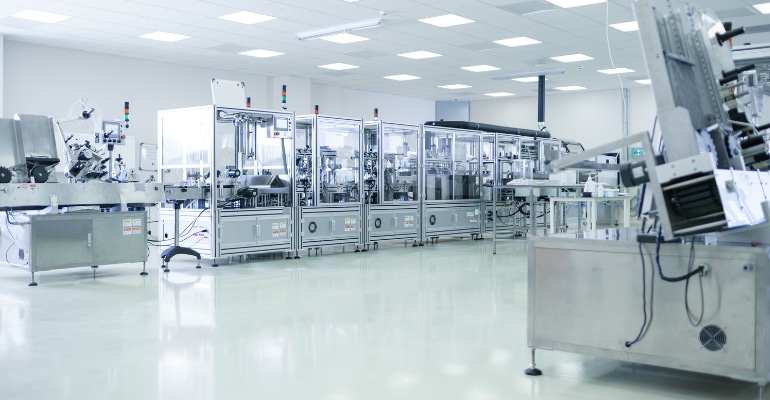Needle-Free Vaccine Patch Company Opens Manufacturing Facility
Vaxxas’ 60,000 sq ft Queensland manufacturing facility touts two qualified aseptic cleanrooms, a medical device manufacturing space, and device assembly cleanroom.

Vaxxas, a clinical-stage biotechnology company specializing in novel vaccination platform technology, recently announced the opening of its manufacturing facility in Brisbane, Queensland, Australia. The 60,000 sq ft facility will support the production of millions of Vaxxas’ high density microarray patches (HD-MAPs) per year for use in future late-stage clinical trials and commercial vaccine products. It contains two independent Good Manufacturing Practice (GMP), qualified aseptic cleanrooms, a medical device manufacturing space, device assembly cleanroom, and supporting infrastructure including laboratories and office space.
The HD-MAP platform uses an ultra-high-density array of projections, invisible to the naked eye, that are applied to the skin as a patch that sits inside a small applicator device. When applied, the patch delivers vaccine to cells immediately below the skin surface, enhancing the efficiency and effectiveness of resulting immune responses of vaccines, according to the company. As the product is a patch and does not use needles, the company is marketing the product as potentially enabling self-administration.
Additionally, because HD-MAP uses dry-coating technology to apply an active and stable vaccine onto the projections, it has the potential to eliminate the need for vaccine refrigeration during storage and transportation. The elimination of refrigeration need could reduce resource and logistic burden of maintaining a refrigerated “cold-chain.”
The new facility, in which the product will be manufactured, will also serve as the company’s global headquarters. Currently, Vaxxas employs 130 people in its Queensland operations, and is planning on increasing that number to 200 over the next three to five years.
The Queensland Government and the Australian Government through its Modern Manufacturing Initiative provided funding and operational support in the development of the facility, representing a significant investment in Australia’s biotech sectors.
“The Government is committed to supporting Queensland biomedical start-ups to scale up successfully and ensure we keep this innovation and our best and brightest researchers on home soil,” said Dr. Steven Miles, Queensland deputy premier, minister for state development, infrastructure, local government and planning and minister assisting the premier on Olympic and Paralympic Games infrastructure, during the facility’s opening ceremony.
Currently, HD-MAP is involved in ongoing phase 1 clinical trials for COVID-19 and seasonal influenza. Additionally, it’s targeting pandemic influenza in studies funded by the United States Biomedical Advanced Research and Development Authority, and a measles-rubella study funded by the Bill and Melinda Gates Foundation, which is expected to start in 2024.
About the Author(s)
You May Also Like




